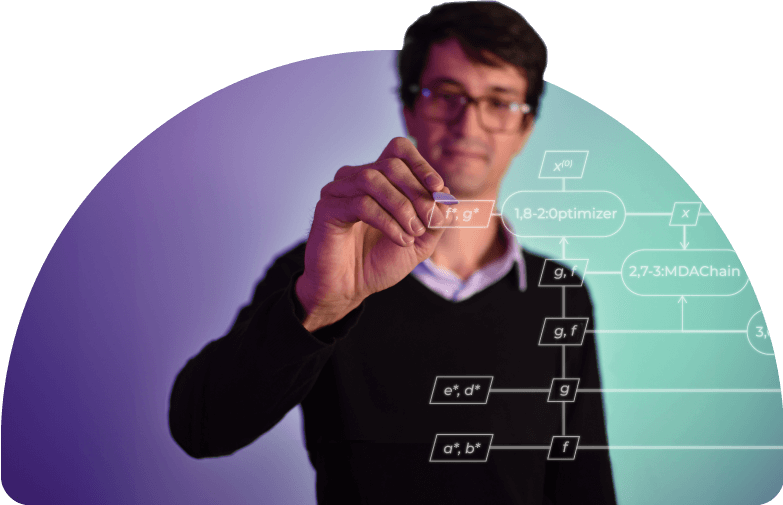We focus our research and development efforts on 4 technological axes: advanced manufacturing technologies, greener technologies, methods & tools for the development of complex systems and smart technologies.
Beyond our target markets, our technologies and skills are adapted to applications for mobility, environment, medical, energy & maritime.
These 4 axes work together to develop cross-cutting technologies to meet the challenges of the aeronautics, space and defense industries.

Method & tools for the development of complex systems
The Methods & Tools for the development of complex systems axis proposes a set of solutions to facilitate the development, optimization and architecture verification of critical systems in a multidisciplinary environment. This activity is divided into three disciplines.
Systems engineering aim to obtain a unified vision of the design of a system, based on heterogeneous data from various languages, methodologies and tools. It exploits digital continuity to deploy a pragmatic solution to improve the consistency of information, whether between different disciplines or in an extended enterprise. Systems engineering must also adapt to the advent of artificial intelligence, both for the systems using it and to take advantage of its benefits to assist systems engineers in their daily work.
The multidisciplinary optimization activity has enabled the development of a new open source python library, GEMS (Generic Engine for MDO Scenarios), designed to automate the creation of easily reconfigurable MDO (Multidisciplinary Design Optimization) processes. It efficiently explores the design space and determines the best solutions to assist designers and architects. GEMS thus fully participates in accelerating the digital transformation of the design and development phases.
This solution is today successfully applied to
The aerodynamic and structural optimization of an aircraft.
- The treatment of uncertainties for the characterization of composite materials.
- The optimization of EMC filter design.
It is generic enough to be applied to any other multidisciplinary optimization problem.
The Critical Embedded Systems activity addresses a set of hardware and software solutions to develop real-time critical applications on execution platforms such as multi-core, FPGA or SoC (System on Chip).
We are particularly interested in the modeling of these architectures, languages and tools to facilitate the resolution of interference, parallelization and temporal and spatial segregation problems for the certification or qualification of critical applications and artificial intelligence algorithms on these architectures.
Activities are also carried out on embedded networks and the interconnections of execution platforms of architectures based on these solutions.

Our objectives
Method & Tools for the Development of Complex Systems
- Enable digital and collaborative system engineering.
- Develop and transfer robust multidisciplinary optimization.
- Design efficient & secure hardware and software architectures.

